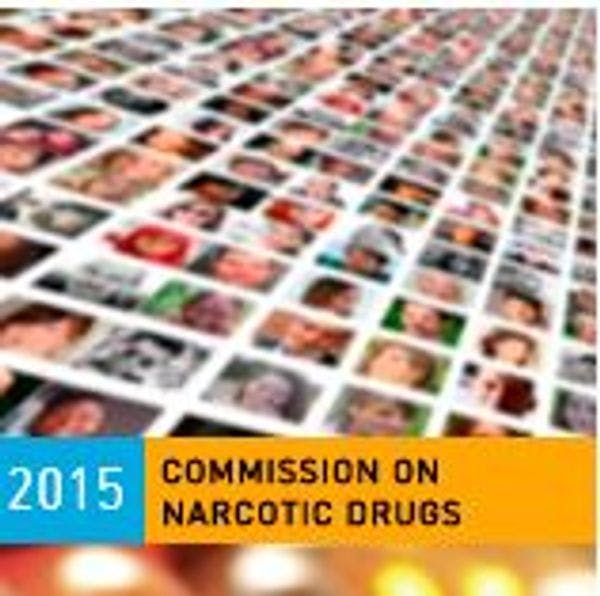Each person counts: Treating drug dependent people with respect
A special event was held as part of the 58th Commission on Narcotic Drugs (CND) to address the prevailing stigma with regard to drug use disorders. Over several years, UNODC has worked to build up an understanding of drug dependence as a health disorder with many complex factors. The event highlighted the need for evidence-based drug dependence treatment and care and showcased good practices from around the world.
UNODC Executive Director Yury Fedotov opened the session noting the important role attitudes play in effective treatment and care, including overcoming the stigma often attached to substance use disorders: "This means looking beyond the statistics and seeing not the addict, not the drug user, not the patient, but the human being who needs our help." He added, "For UNODC, it is essential to focus on the human dimension - the men, women and children affected by drug use and dependence, and all of the consequences for health and society that illicit drugs can have."
This was echoed by Gilberto Gerra, Chief of the Drug Prevention & Health Branch of UNODC, moderator of the session. Dr. Gerra explained that his inspiration for the title of the event and the event itself, was the parents of patients for whom the value of their sons and daughters did not diminish simply because they were struggling with substance use. He added that "institutions should treat people as they would their own families."
The Director of National Drug Control Policy (ONDCP), Michael Botticelli, explained the evolving strategy in the US to address the issues of drug problems, saying: "Central to our strategy is understanding that people and families affected by substance use disorders need care and respect. Historically, policies have been based on the idea that people with substance use disorders were morally flawed and lacked willpower, this elicited a very punitive response to the problem. Now we have an incredible body of evidence that this is clearly a disease of the brain and requires a targeted health response."
Click here to read the full article.
Keep up-to-date with drug policy developments by subscribing to the IDPC Monthly Alert.
Regions
Related Profiles
- United Nations Office on Drugs and Crime (UNODC)
